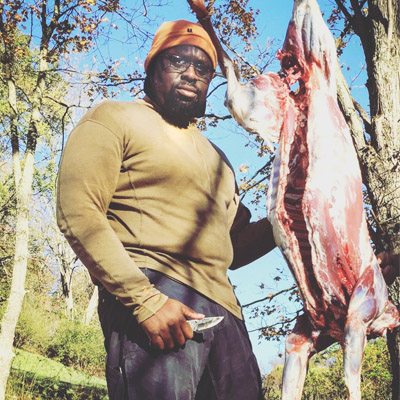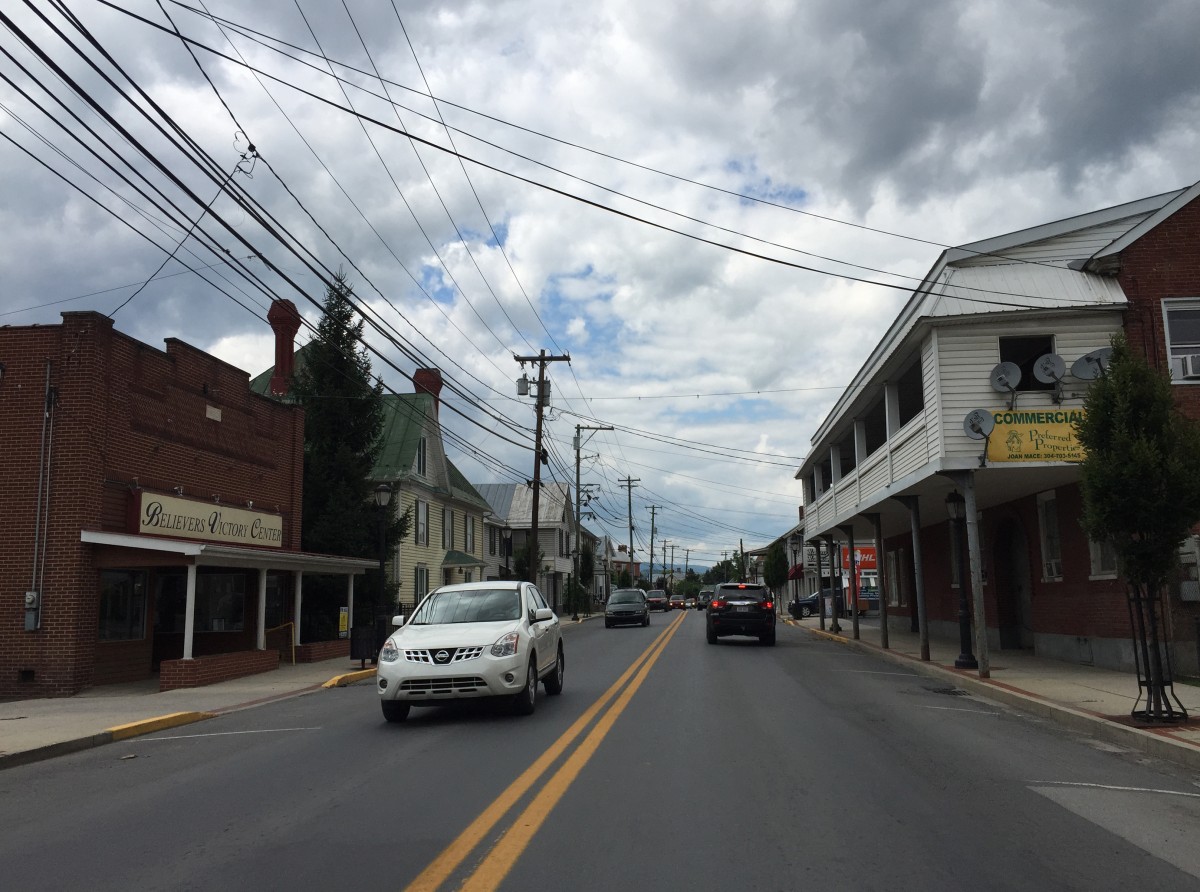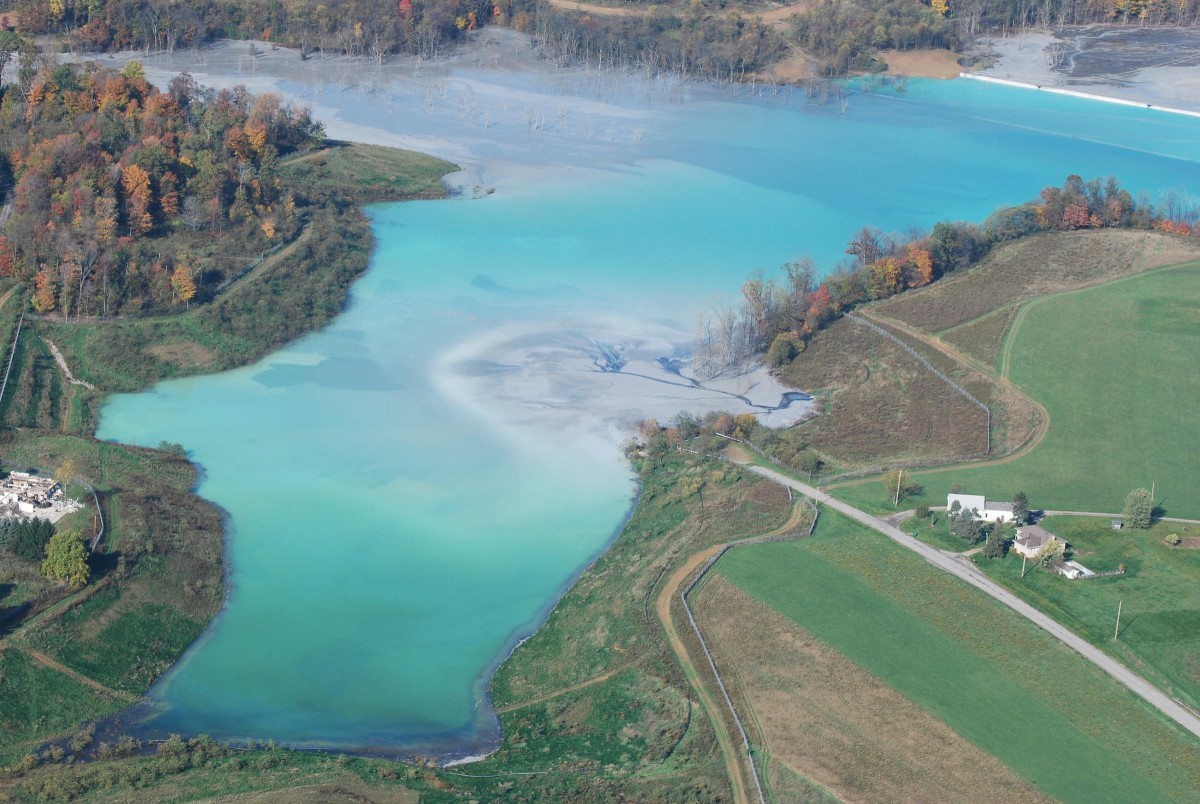When I hunt, usually on white people’s land, I wonder if they know who lived there before. Or what would happen if I was just some random Black man on their property?
If you identify as white or a hunter (or a white hunter), what you are about to read should make you uncomfortable.
Here goes: In the United States, the story of the land is written in the blood of native people and centuries of forced labor by kidnapped Africans. So it’s no wonder that more than 90 percent of land is “owned” by white Americans. And that includes the lands where I hunt.
Maybe this is the first time you’ve thought about race, land, and hunting. Maybe you’re surprised to be hearing this from a Black hunter. Hunting talk rarely involves race and Blackness. But that rarity is no more an accident than the absence of indigenous people from the land.
It’s been more than a year since I appeared on the West Virginia episode of the late Anthony Bourdain’s Parts Unknown show and wrote an article titled “Hunting While Black.” I’ve gotten a lot of positive feedback. But I’m most proud of comments where people expressed thanks for being challenged to think more closely about race and hunting.
To be fair, I hadn’t thought all that thoroughly about the connections between white supremacy and the land until recently. My interest in the connection came, slowly, from my experience as a Black person and Black ecology student, and from other Black scholars and citizens who knew and lived this history. After hearing scholar and activist Carolyn Finney, author of Black Faces, White Spaces: Reimagining the Relationship of African Americans to the Great Outdoors, speak last year, I was inspired to keep learning and speaking about the importance of understanding the connections.
In her talk, Finney explained the difference between anger—which she defined as legitimate disquiet rooted in witnessing or experiencing injustice—and bitterness, the paralyzing toxicity that often follows anger. She tries to avoid bitterness, but she’s angry about things, including how land in the United States is distributed.
Throughout her talk, I was jolted out of my general fanboy malaise (I’m a huge admirer of Finney’s work) by a single sentence she kept repeating: “All this land was stolen!”
Like Finney, I’m angry about whiteness. In my Parts Unknown article, I took special care to craft my words so that white folks wouldn’t be turned off. That’s what one has to do to appeal to a mainstream audience, but “nice” is not how I feel about whiteness.

I’m angry that the original people of these lands have been and continue to be stripped of their sovereignty. I’m angry that the “civilization” that’s tried to replace theirs is really good at ignoring justice. I’m angry that horrific white violence has shaped the way so many people of color live in this country. I’m angry that so many well-meaning “good white folks” daily choose not to see the giant festering wounds of trauma their ancestors inflicted and they, through their willful ignorance of whiteness, perpetuate.
And it’s not as if this history is new. White supremacy goes a long way to explaining rural land ownership—and how little of that land is owned by Black people. I’m talking specifically about the terrorism that Black people suffered after the Emancipation Proclamation, Lincoln’s assassination, and President Andrew Johnson’s taking office. That includes almost 4,000 reported lynchings from 1877 to 1950. We know about the Great Migration, but don’t formally educate our children about why so many Black people “decided” to leave the South in “search of better opportunities up north.” They were running from terrorists who threatened their lives and lynched those who resisted. That trauma and violence still operates today. This structural and interpersonal violence was just the next step in the evolution of the white supremacist colonial state.
Every time I interact with white landowners, negotiating access to their land for hunting, I wonder: Do they know this history? Is it part of their day-to-day reality the same way that farm maintenance is an ever-present reality? Do they even know the name of the people who lived on their land before they got there?
I wonder how they treat Black people they don’t know. Are they suspicious of them? Does their familiarity with me insulate me from their racial hostility?
I don’t hunt public land because white men with firearms and a reason to discharge said firearms make me incredibly nervous. Just ask the family of Garrick and Carl Hopkins of Cabell County, West Virginia—two Black men killed by their white neighbor for “trespassing” on their own land. Philando Castile’s 2016 death makes any encounter with police to and from a hunt much more dangerous for me. Do I tell the officer I have a firearm in the car? If I don’t, and he decides to search my car, what happens if he finds the firearm I didn’t disclose?
Can we have a conversation about what justice looks like in the aftermath of genocide and anti-Black violence? The answer from the hunting community has been a deafeningly loud but silent “no.”
I do appreciate the praise and comments sparked by my Parts Unknown appearance and article. If I have one response to the feedback I’m still hearing, it would be that white people have to do right by the people murdered and terrorized by their ancestors. Doing right means learning this history and the realities of the land on which we live. All this land was stolen.
Yes, you have a responsibility to live up to the ideals you say this country was founded on, especially as the stewards of the spoils of a racist enterprise. No, you didn’t start this enterprise, and no one is blaming you for the injustices levied before you had agency.
But I’m realistic. Ninety-nine percent of white people are terrible at talking about racism. That’s not hyperbole, either. Most white people absolutely suck at talking about race.
Take these responses I’ve gotten on my Hunting While Black article from well-meaning white folk.
“I agree with you that outdoor spaces are highly racialized, and I think your concerns about ‘hunting while black’ are legitimate.”
My imagined response: Thank you for that affirmation. I’m both glad you’re telling me that you think my experience is legitimate and that you are concerned that I know that you think my experience is legitimate.
Or “one of my first thoughts was: ‘This guy is way outside the box.’ And I love it! Not only because you are a Black man living in West Virginia who hunts, but add to that—has a PhD in ecology and teaches in the department of geography, too!“
My imagined response: Who knew Negroes could live in West Virginia, have a PhD, and teach in a real-life college department?! That’s so far outside the box that it boggles the mind. I must tell this magical Negro that he is special because he certainly hasn’t heard that before AND I’m sure being reminded that he’s almost completely alone in his identity is outweighed by a random white person telling him he’s special.
And then, “Hey, I read your article about hunting in West Virginia. Good stuff!”
My imagined response: Say it with me: “white supremacy.” My article was really about white supremacy. But I pitched it gently because white people take it personally when you point out that many of their ancestors were terrible people and that many more did little to nothing to stop the really bad ones.
Told you I was angry.
But at this point, I want to cut white folks the tiniest bit of slack. When you consider the legacy of segregation, it makes sense that most people—particularly white people—live in physical and social spheres of extreme racial homogeneity. I know the homogeneity thing well; After all, I am the first African-American faculty member in my department, I was the first African American to earn a PhD in ecology from my department (in 2011), and am currently one of two African-American tenure-track faculty in a college with almost 300 faculty. I feel the overwhelming whiteness of my environment but can count on one hand the number of white people I’ve met along the way who were keenly aware of how distressing it is being the only Black person in so many spaces.
I get white folks‘ resistance to learning about the wages of whiteness. It must be hard for a white person, in the same way learning Disney has a long history of being incredibly racist (sorry, not sorry) is hard. Being racially introspective is work people of color know how to do. We do it as a matter of survival.
White folks avoid the work of understanding racism as a matter of happiness. Remaining ignorant to racism versus moving to change it is like choosing between riding in first class on a 15-hour flight or having to write an entire astrobiology dissertation on the same flight while seated in an economy-class middle seat between a screaming child with irritable bowels and a heavy-sleeping cuddler who open-mouth snores after eating two orders of garlic bread—with extra garlic. Why would anyone reject that first-class seat?
The catch, of course, is that you forfeit any legitimate claims of living justly by choosing the first-class seat. If you never acknowledge the fundamentally unfair system that created your comfort and the structural discomfort of others, then what do phrases like “all men are created equal” or “unalienable rights” or “life, liberty, and the pursuit of happiness” actually mean?
U.S. society will not fundamentally change unless white people embrace the discomfort that comes with being white. Full stop. What white people have collectively done to make this country more just is not enough. You have to do more. Every single white person. And you know this is true because articles like this one are still necessary, still controversial, and will still result in white people’s blind anger at the mere mention of their responsibility for racism.
Don’t be angry at people of color for pointing this out. The forefathers and foremothers whom many of you venerate, who designed this genocidal and racist society, are to blame. They sold you out for a shot at first class on a stolen credit card and stuck you with the bill. Your anger should be aimed at them, not people of color.
The good news is there are millions of people of color ready to work with you on building a truly just society—when we know you can be trusted to not do us harm.
But until the day comes when the majority of white people take justice seriously, I’m going to avoid public land hunts, wear double the blaze orange that’s needed, and drive below the speed limit when my firearm is in the car.
I wish everyone happy, safe, and successful hunting this year—especially the Black hunters.
This article was originally published by Rewire.News.



